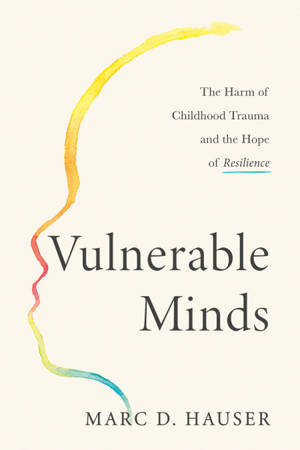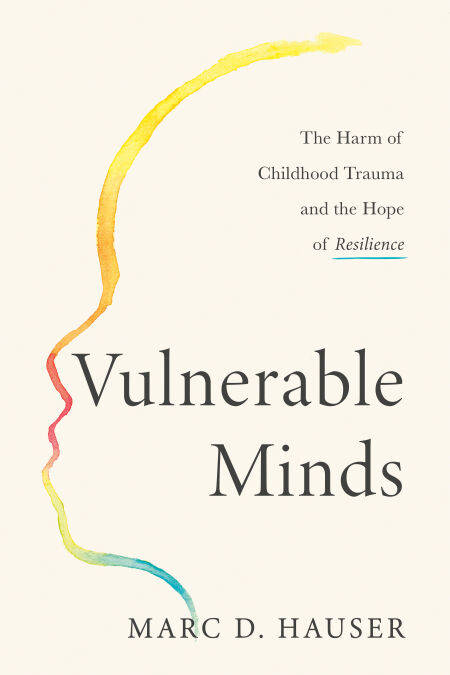
Bedankt voor het vertrouwen het afgelopen jaar! Om jou te bedanken bieden we GRATIS verzending (in België) aan op alles gedurende de hele maand januari.
- Afhalen na 1 uur in een winkel met voorraad
- In januari gratis thuislevering in België
- Ruim aanbod met 7 miljoen producten
Bedankt voor het vertrouwen het afgelopen jaar! Om jou te bedanken bieden we GRATIS verzending (in België) aan op alles gedurende de hele maand januari.
- Afhalen na 1 uur in een winkel met voorraad
- In januari gratis thuislevering in België
- Ruim aanbod met 7 miljoen producten
Zoeken
Vulnerable Minds E-BOOK
The Harm of Childhood Trauma and the Hope of Resilience
Marc D. Hauser
E-book | Engels
€ 18,50
+ 18 punten
Omschrijving
A new, hopeful pathway to understanding children’s trauma and providing effective interventions to build healthier communities
Each year at least a billion children around the world are victims of adverse childhood experiences (ACEs) that range from physical abuse to racial discrimination to neglect and food deprivation. The brain plasticity of our most vulnerable makes the adverse effects of trauma only that much more damaging to mental and physical development. Those dealt a hand of ACEs are more likely to drop out of school, have a shorter life, abuse substances, and suffer from myriad mental health and behavioral issues.
The crucial question is: How do we intervene to offer these children a more hopeful future? Neurobiologist and educator Dr. Marc Hauser provides a novel, research-based framework to understand a child’s unique response to ACEs that goes beyond our current understanding and is centered around the five Ts—the timing during development when the trauma began, its type, tenure, toxicity, and how much turbulence it has caused in a child’s life. Using this lens, adults can start to help children build resilience and recover—and even benefit—from their adversity through targeted community and school interventions, emotional regulation tools, as well as a new frontier of therapies focused on direct brain stimulation, including neurofeedback and psychedelics.
While human suffering experienced by children is the most devastating, it also presents the most promise for recovery; the plasticity of young people’s brains makes them vulnerable, but it also makes them apt to take back the joy, wonder, innocence, and curiosity of childhood when given the right support. Vulnerable Minds is a call to action for parents, policymakers, educators, and doctors to reclaim what’s been lost and commit ourselves to our collective responsibility to all children.
Each year at least a billion children around the world are victims of adverse childhood experiences (ACEs) that range from physical abuse to racial discrimination to neglect and food deprivation. The brain plasticity of our most vulnerable makes the adverse effects of trauma only that much more damaging to mental and physical development. Those dealt a hand of ACEs are more likely to drop out of school, have a shorter life, abuse substances, and suffer from myriad mental health and behavioral issues.
The crucial question is: How do we intervene to offer these children a more hopeful future? Neurobiologist and educator Dr. Marc Hauser provides a novel, research-based framework to understand a child’s unique response to ACEs that goes beyond our current understanding and is centered around the five Ts—the timing during development when the trauma began, its type, tenure, toxicity, and how much turbulence it has caused in a child’s life. Using this lens, adults can start to help children build resilience and recover—and even benefit—from their adversity through targeted community and school interventions, emotional regulation tools, as well as a new frontier of therapies focused on direct brain stimulation, including neurofeedback and psychedelics.
While human suffering experienced by children is the most devastating, it also presents the most promise for recovery; the plasticity of young people’s brains makes them vulnerable, but it also makes them apt to take back the joy, wonder, innocence, and curiosity of childhood when given the right support. Vulnerable Minds is a call to action for parents, policymakers, educators, and doctors to reclaim what’s been lost and commit ourselves to our collective responsibility to all children.
Specificaties
Betrokkenen
- Auteur(s):
- Uitgeverij:
Inhoud
- Aantal bladzijden:
- 352
- Taal:
- Engels
Eigenschappen
- Productcode (EAN):
- 9780593538715
- Verschijningsdatum:
- 11/03/2024
- Uitvoering:
- E-book
- Beveiligd met:
- Adobe DRM
- Formaat:
- ePub

Alleen bij Standaard Boekhandel
+ 18 punten op je klantenkaart van Standaard Boekhandel
Beoordelingen
We publiceren alleen reviews die voldoen aan de voorwaarden voor reviews. Bekijk onze voorwaarden voor reviews.









